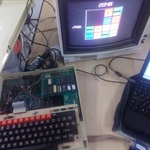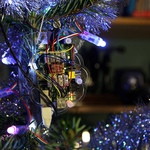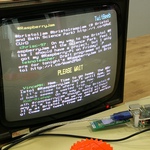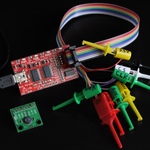Recent Developments in BBC B Hacking
BBC B running 2048 I’ve recently been experimenting at the Hackspace with UPURS and UPURSFS. These unfriendly strings of letters amount to a cable that links the BBC’s User port to my laptop via a USB to serial converter, two ROMs that go in the Beeb and some Perl code that runs on my laptop. The upshot of which is that I can access parts of the filesystem of my laptop as if they were floppies on the BBC.
Read more




